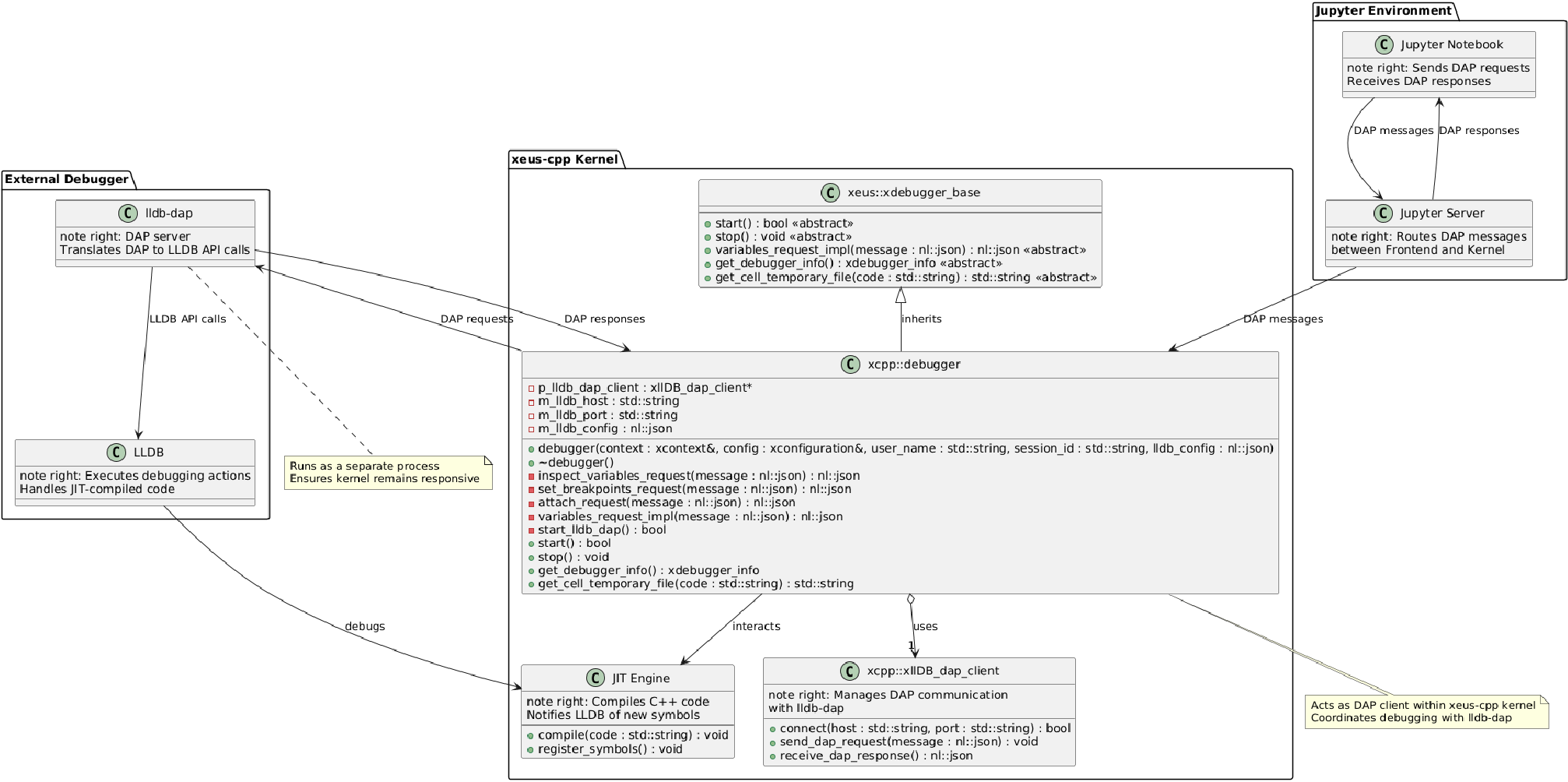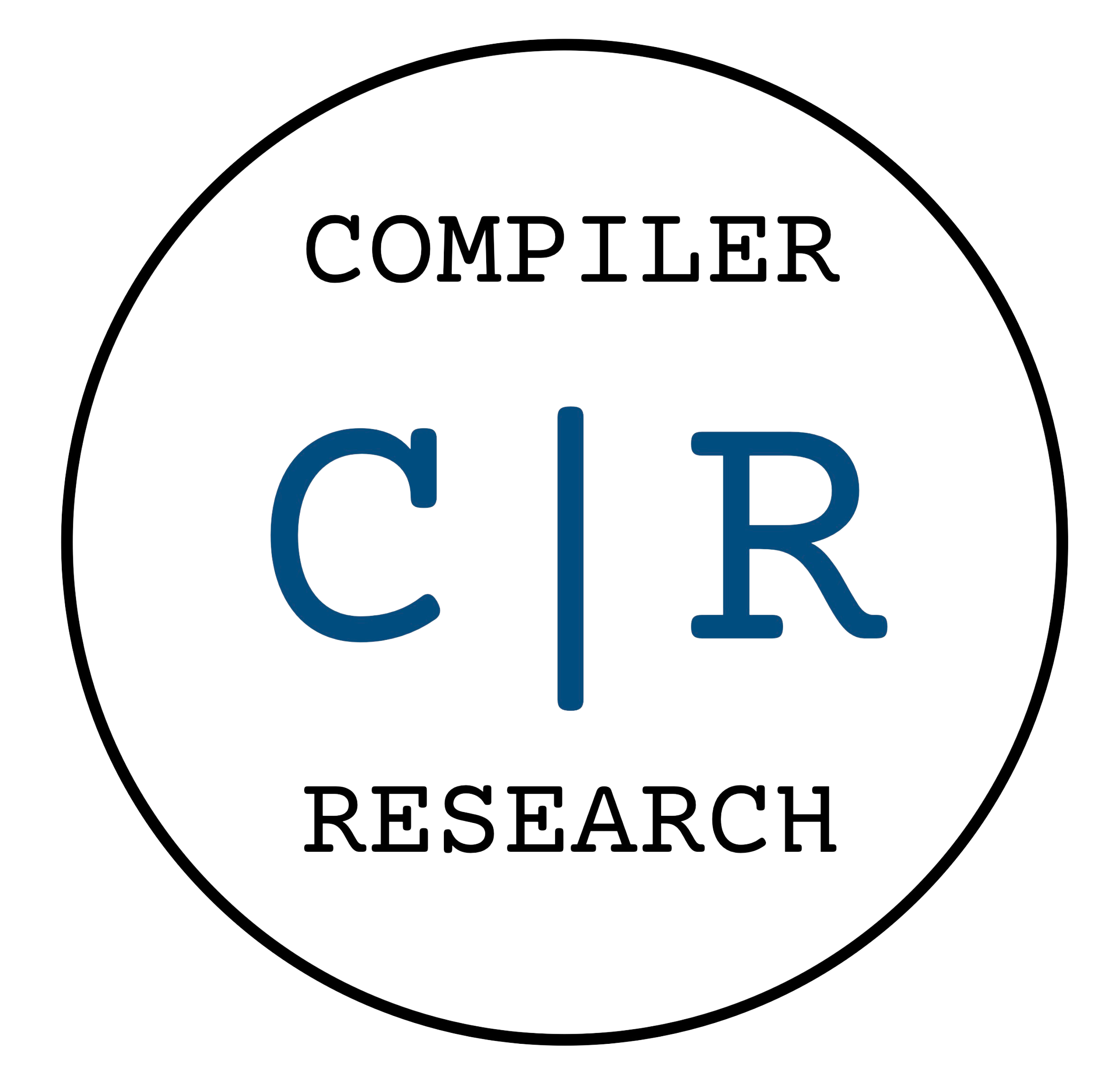Implementing Debugging Support for xeus-cpp
Introduction
I am Abhinav Kumar, a final-year Computer Science and Engineering undergraduate at Indian Institute of Technology(IIT) Indore. I’m thrilled to be working with CERN-HSF for Google Summer of Code 2025 on the project “Implementing Debugging Support for xeus-cpp.”
Mentors: Anutosh Bhat, Vipul Cariappa, Aaron Jomy, Vassil Vassilev
The Need for Seamless C++ Debugging in Jupyter
Jupyter notebooks have revolutionized interactive computing, and kernels like xeus-cpp bring the power of C++ to this environment. However, while writing and executing C++ code incrementally is great, the debugging experience can be a hurdle. Developers often need to step through their code, inspect variables, and understand the program’s state, especially when dealing with the complexities that C++ can present. This project aims to bridge that gap by integrating robust debugging capabilities directly into the xeus-cpp kernel.
Project Goal: Interactive Debugging with LLDB and DAP
The core idea is to bring a full-fledged debugging experience to xeus-cpp users within Jupyter. This means enabling features like:
- Breakpoint Management: Setting and removing breakpoints with ease.
- Variable Inspection: Examining the values of variables at different execution stages.
- Step-Through Execution: Controlling the flow of code execution (step in, step over, step out).
- Stack Tracing: Understanding the call stack to pinpoint issues.
To achieve this, the project will leverage existing, powerful technologies:
- LLDB: The LLVM debugger, which has excellent support for JIT-compiled code and Clang integration—perfect for how xeus-cpp executes code dynamically.
- Debug Adapter Protocol (DAP): A standardized protocol by Microsoft that allows debuggers to communicate with development tools. This ensures compatibility with Jupyter’s frontend and follows the successful model of xeus-python.
A key design principle is to run the debugger (specifically, lldb-dap, which acts as a DAP server for LLDB) as an external process. This is crucial for kernel stability, preventing the Jupyter kernel from freezing when a breakpoint is hit.
Proposed Architecture Overview
The proposed system involves a few key components working together:

-
Jupyter Environment (Notebook & Server): The user interface where DAP requests are initiated and responses are displayed.
- xeus-cpp Kernel:
xcpp::debugger: A new class that will manage the debugging session, inheriting from xeus::xdebugger_base. It will handle DAP messages and interact with the lldb-dap client.xcpp::xlldb_dap_client: This component will manage the actual DAP communication with the external lldb-dap process.JIT Engine: Compiles the C++ code from cells and notifies LLDB about new symbols.
- External Debugger (lldb-dap & LLDB):
lldb-dap: Runs as a separate server, translating DAP messages into LLDB API calls and vice-versa.LLDB: Executes the debugging actions on the JIT-compiled code.
This modular design, inspired by xeus-python, aims for a lightweight integration that reuses existing xeus infrastructure where possible.
Progress and Path Forward
I’ve already made some promising headway:
- Successfully demonstrated that LLDB can attach to and debug JIT-compiled code generated by CppInterOp (which xeus-cpp relies on). This involved ensuring symbols are resolved correctly when
plugin.jit-loader.gdb.enableis active in LLDB. - Set up debugging in VSCode using lldb-dap for JIT-compiled code, proving the viability of lldb-dap for this context.
- Experimented with running the lldb-dap executable on a specific port and sending DAP requests (initialize, launch, setBreakpoints, continue) via a Python script, successfully hitting breakpoints and getting stack traces.
The roadmap includes:
- Implementing debugger class: Defining the main debugger class, handling the debugger lifecycle, and managing LLDB-DAP settings. A key modification will be using a “launch” request instead of “attach” (as xeus-python does), because LLDB needs to launch our custom executable containing the JIT code. This might require minor adjustments in xeus-zmq.
- Developing lldb-dap client: This class will inherit from
xeus::xdap_tcp_clientand manage the low-level DAP communication. - Robust Testing: Implementing a comprehensive testing framework using GoogleTest.
Expected Benefits and Future Scope
Successfully completing this project will significantly enhance the C++ development experience within Jupyter notebooks. It will provide:
- A seamless, interactive debugging workflow for xeus-cpp users.
- Increased productivity by allowing developers to quickly identify and fix bugs in their C++ notebook code.
- A more robust and feature-complete C++ kernel for the Jupyter ecosystem.
Looking ahead, the architecture is designed with future-proofing in mind, potentially supporting advanced features like remote debugging, alternative debuggers or debugger in xeus-cpp-lite.





